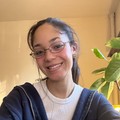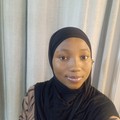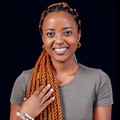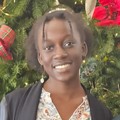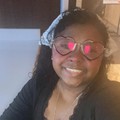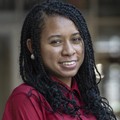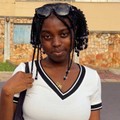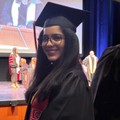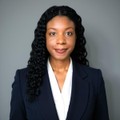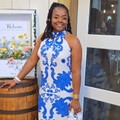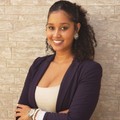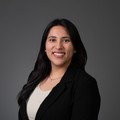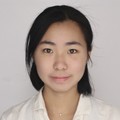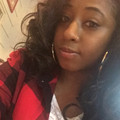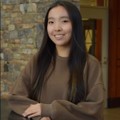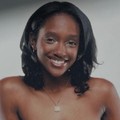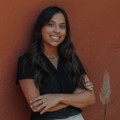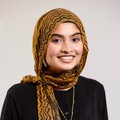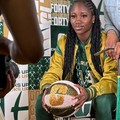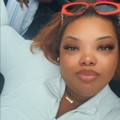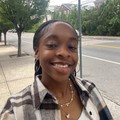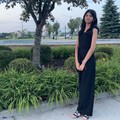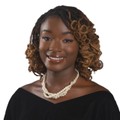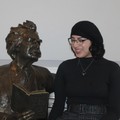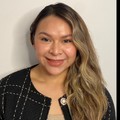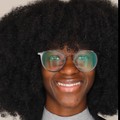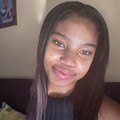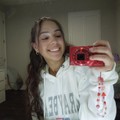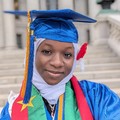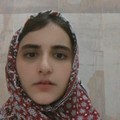As an adolescent girl in suburban Lahore, I often sat on a tattered bench during recess at my all-girls high school which had neither a park, a library, nor a science lab. While my classmates played, I embarked on thrilling adventures with characters from Roald Dahl’s novels and navigated the struggles of girlhood and a tumultuous family life through Jacqueline Wilson’s novels. In my modest household, where my mother worked long shifts at a local community clinic, books were both a luxury and the means of survival. These books opened my mind to possibilities far beyond my surroundings, planting the seeds of a very ambitious dream, to become a physicist, mathematician and a writer.
Growing up in a society where STEM education is a privilege for only a few, I became aware of the educational inequity in science and tech. In my public school’s CS class, we spent day after day cramming definitions of “Software”, “Hardware”, “Double-Click” and “File”. We were taught no programming, app-development and had no exposure to AI. Just rote learning from decades old textbooks that included nothing but constant memorization of various tools. Computers were framed as “big machines for big people,” rather than tools anyone with curiosity and drive could use to create meaningful innovations.
This issue resonates deeply with me because this school system is so outdated that it doesn’t even introduce the digital world let alone prepare students for it. In this age, when we’re closer than ever in achieving AGI, we still have millions of students being taught day after day to parrot definitions instead of learning to create. And this is not a small loss, this is a massive theft of human potential. I recall reading Paul Graham, founder of Y Combinator, who repeatedly emphasizes, “Learn to code.” For students from lower-income backgrounds in developing countries, such opportunities are rare, locked behind privilege, scarcity, and systemic neglect. While the causes are complex, corruption, underfunding, or indifference, the result is clear: there is an entire generation unaware of what they could achieve.
I had no mentors or tutors. But I had the Internet. From a young age, I used Khan Academy, joining Schoolhouse.World tutoring sessions and explored GitHub repositories. I was quite active on MathStack Exchange, and I learned Python on my phone using Replit because I could not afford a laptop. I kept going and eventually, I earned a grant from the National Science Foundation for my Machine Learning and Astronomical Data Analysis research work. But I didn’t walk alone. I hosted free online and in-person sessions for girls in my community and taught them everything that I knew–Mathematics, Programming logic, Intro to CS and building websites using Replit. I made it a point to show them: “Look, you can do this even if no one around you has ever done it before.”
To build confidence, I organized local mini hackathons where the goal wasn’t just to win but to try. We didn’t have much but there was a lot of passion, curiosity and shared hunger to do more than just memorize. My dream is to rescale this. I want to help redesign the tech curriculum in schools across Pakistan and other developing countries, to make it hands on, creative and accessible. Access to technology and science shouldn’t be a privilege. It should be a launchpad and I’m building it, one line of code and one student at a time.
I read the works of Daniel Defoe and Antoine de Saint-Exupéry, and as I grew up, so did my reading habits. Some days, I would read Six Easy Pieces by Feynman, and other days, I’d read Oliver Twist by Dickens. That seamless transition from literature to physics was where my true fascination took root. I was curious about time, space, and the laws of nature. Physics stirred a sense of wonder that I had never felt before, a quest to explore, question, and understand the universe at its most fundamental level. This was my calling, the tolling of an awakening bell, I finally found a place where I belonged.
In the next 5 years, my goal is to publish my research work of the elaboration of Schrodinger’s equation in Quantum Physics in a leading journal such as Nature or Physical Review Letters. To get there, I plan to immerse myself in advanced coursework and research at Drake University, seeking out faculty mentors who specialize in quantum mechanics and computation. I will pursue summer research programs and internships to deepen my expertise and gain exposure to international research standards. I am already familiar with publishing through my experience in astronomical data analysis, and I intend to build on that foundation by developing a strong research portfolio in theoretical and experimental quantum physics.
I also plan to sharpen my mathematical rigor by competing in the William Lowell Putnam Mathematical Competition, one of the most prestigious undergraduate mathematics contests in North America, known for its extremely challenging problems. Preparing for the Putnam, as well as other university-level math tournaments, will strengthen my problem-solving ability, creativity, and precision, all of which are essential for high-level physics research. I have already begun preparing for these competitions, using them as both a benchmark and a training ground for deeper mathematical thinking.
My dream of studying in the USA came with a crushing reality: nearly all Pakistani students accepted to American colleges had either Cambridge’s A-Levels or College Board’s AP qualifications, both of which were outrageously expensive for my family. I could not afford to take that path, so I stayed with the national curriculum and decided to give it a shot.
“Now is no time to think of what you do not have. Think of what you can do with what there is.”
- Ernest Hemingway, The Old Man and the Sea.
Then, in early 2024, something totally unexpected happened. I was awarded a $1,000 prize from the National Science Foundation for my research in astronomical data analysis and machine learning. A few months later, I learned that my poem had been ranked second in a poetry competition, earning me another $500. With that money, I took a risk.
I enrolled as a private candidate for the SchoolHouse examinations. I prepared for them entirely on my own. I had nothing but my laptop, online books in PDF format, past papers, and Khan Academy. I studied tirelessly-night and day. I took the exams on my own terms, without telling anyone, and I scored 100% in each major subject.
This odyssey of self-study and resolve has grown into something far more than just an academic pursuit. I have proven to myself that I am capable of overcoming a challenge. The Old Man and the Sea lays out this phenomenon of survival very clearly:
“But man is not made for defeat… a man can be destroyed but not defeated.”
Ultimately, we-as humans-reach a point in our lives where we realize that our journeys are not defined by the obstacles we face, but by how we choose to respond to them. We know who we are, we know where we come from, and we know what we have, but we become more mindful of where we’re going. Man is driven by a vision that extends far beyond the limitations of his present-a vision of true fulfillment, where each day begins with the joy of pursuing what he loves most. And when each day is spent in joy and fulfillment, in whatever form it may take, only then can a man say that he was here, he saw the world, and that he truly lived.
My identity as a woman has only empowered me, it has never restricted me from doing what I’ve loved to do. One of the examples of this is that I earned 3rd place in Pakistan’s largest marathon, Run for Pakistan, after two years of training The sun blazed and my legs ached with the triumph of 3rd place in Pakistan’s largest marathon. Growing up in a small town in Lahore, running wasn’t just an exercise. It was freedom in its own way and after training for 2 years, I finally won the national Run for Pakistan marathon. That same persistence fuels my academic journey. Just as I trained for months to endure the marathon, I’ve been sharpening my intellectual endurance, immersing myself in physics, mathematics, and problem-solving.
In the summer of 2022, there was a deadly flood in my country. Our schools were closed, and exams were delayed. We also faced long power shortages-15-17 hours long. For 17 hours straight, we’d get no power and so it became increasingly difficult to do everyday tasks. At that time, I decided to make Solar Panels from scratch. I bought Copper clad iron and Ferric Chloride solution and cleaned it with alcohol. I used the tinner to mark the inside of the boundaries of the iron and applied silicon paste over it. I created anode and cathode using a digital multimeter. With the help of my brother, I set up scaffolding and installed the solar plate mounts. We also set up MC4 connectors throughout the house and installed an inverter. After 2 weeks and 3 days, we tested the panels, and they proved to be a success. The light in my room and the little lamp on my desk ran on solar power.
In early 2025, I received an acceptance letter from my dream school, Drake University, with the Presidential Merit Scholarship in Physics and Mathematics. While my tuition is fully covered, the remaining cost of room, board, meals, and living in Des Moines over $16,000 per year, remains far beyond my family’s reach. My mother earns an unstable income averaging less than $3,000 annually. Despite her tireless efforts, our household cannot support the full cost of living in the U.S.
I have consistently sought ways to support myself through writing contests, scientific grants, and freelance work. Without any elite schools, tutors, or counselors, I relied on my determination and ingenuity. This scholarship would not merely allow me to attend classes; it would place me in orbit, giving me access to resources, mentorship, and opportunities to bridge my dual interests for Physics and Math. It would enable me to take advanced courses, graduate early, and pursue physics research at institutions such as Caltech.
From a girl on a tattered bench, lost in the pages of books, I now stand on the threshold of accomplishing my ambitions and goals. With this support, I can contribute meaningfully to the fields of science and technology and continue to push the boundaries of what is possible for someone from my background.
As my favorite poet Robert Frost wrote, “The only way out is through.” This statement has guided me through challenges both mundane and extraordinary, from power outages in Lahore to self-study exams and financial uncertainty. With your help, I can continue through, not merely to survive, but to thrive, combining intellect, creativity, and resilience to make a lasting impact.
